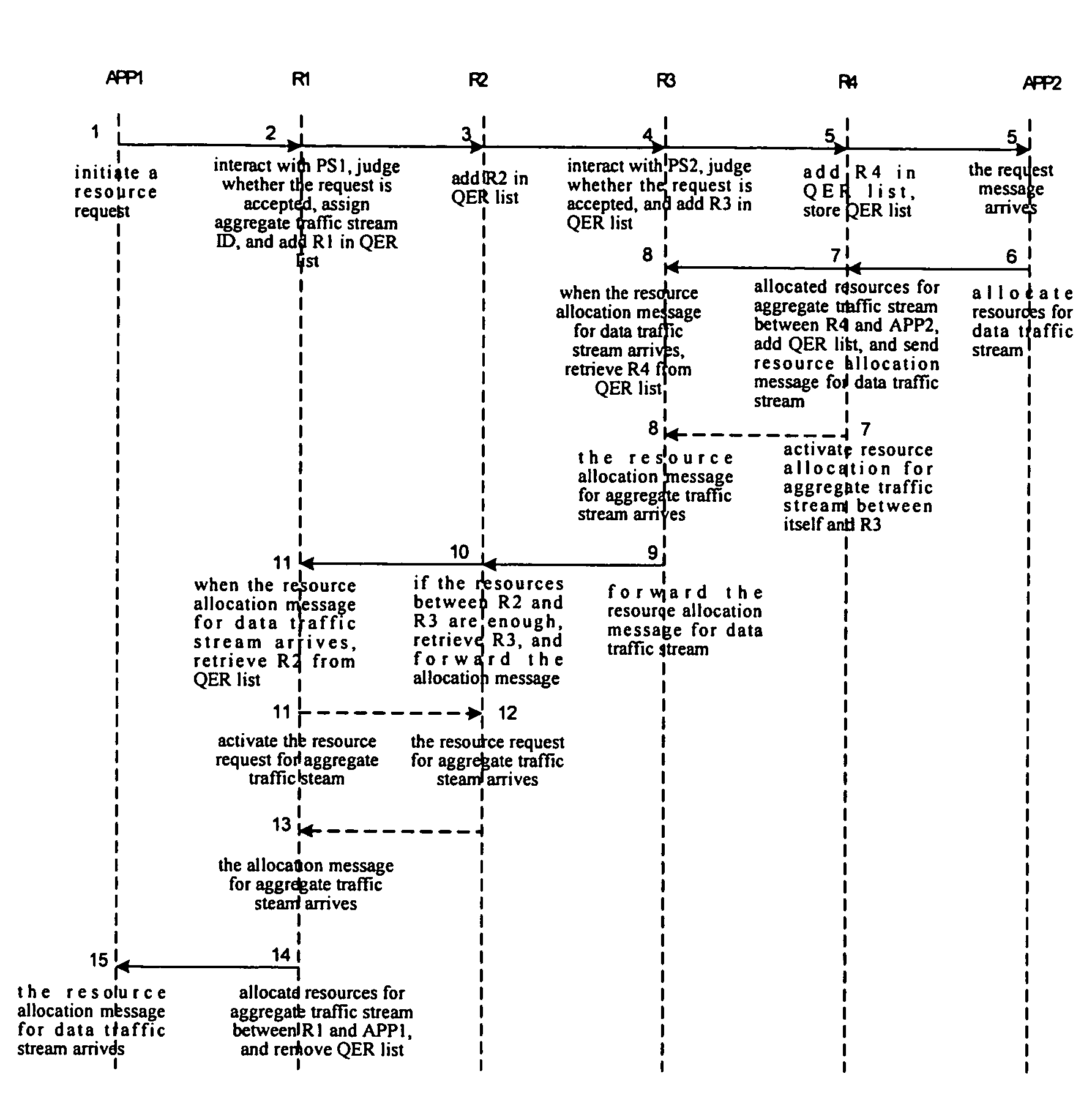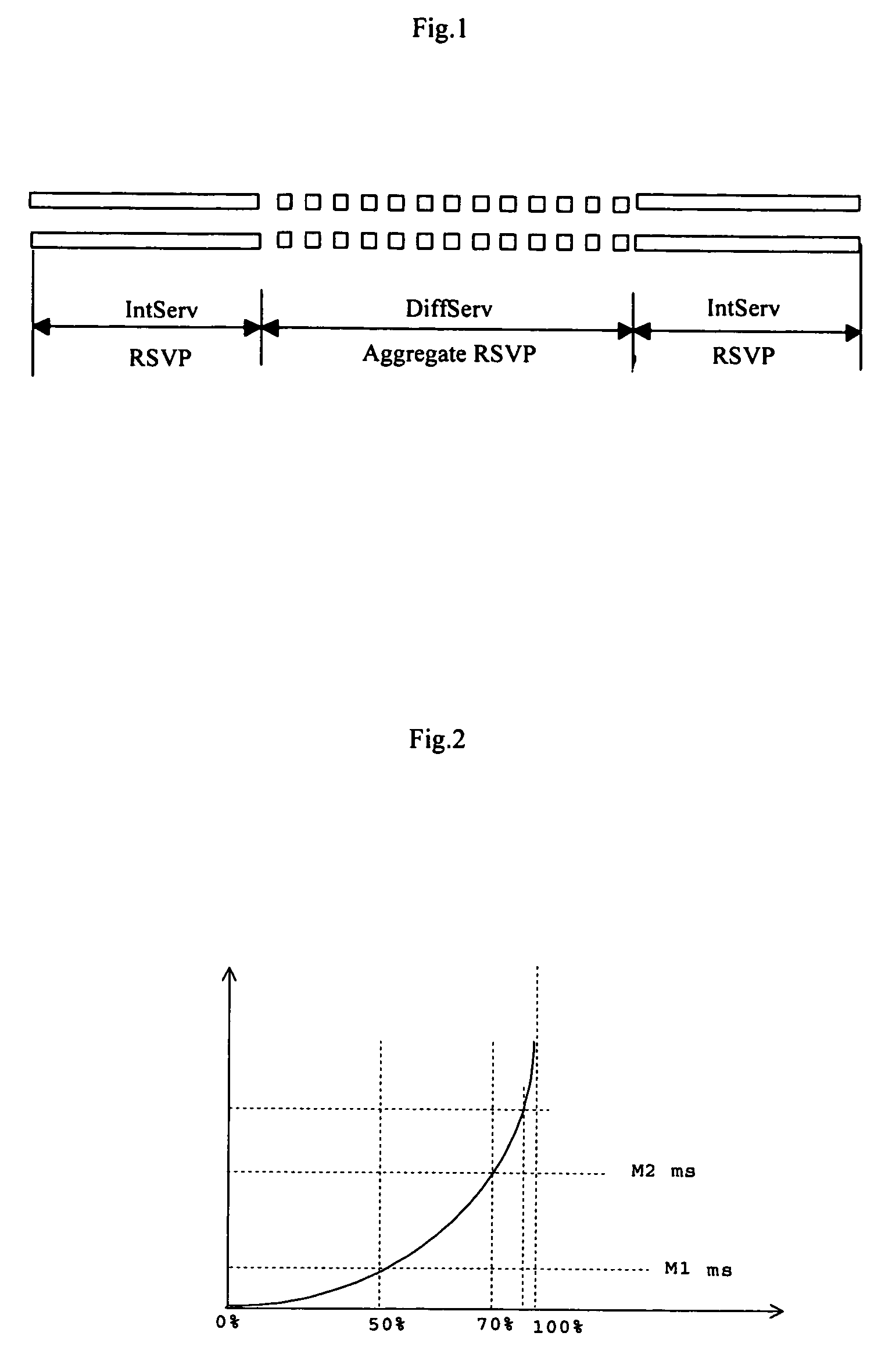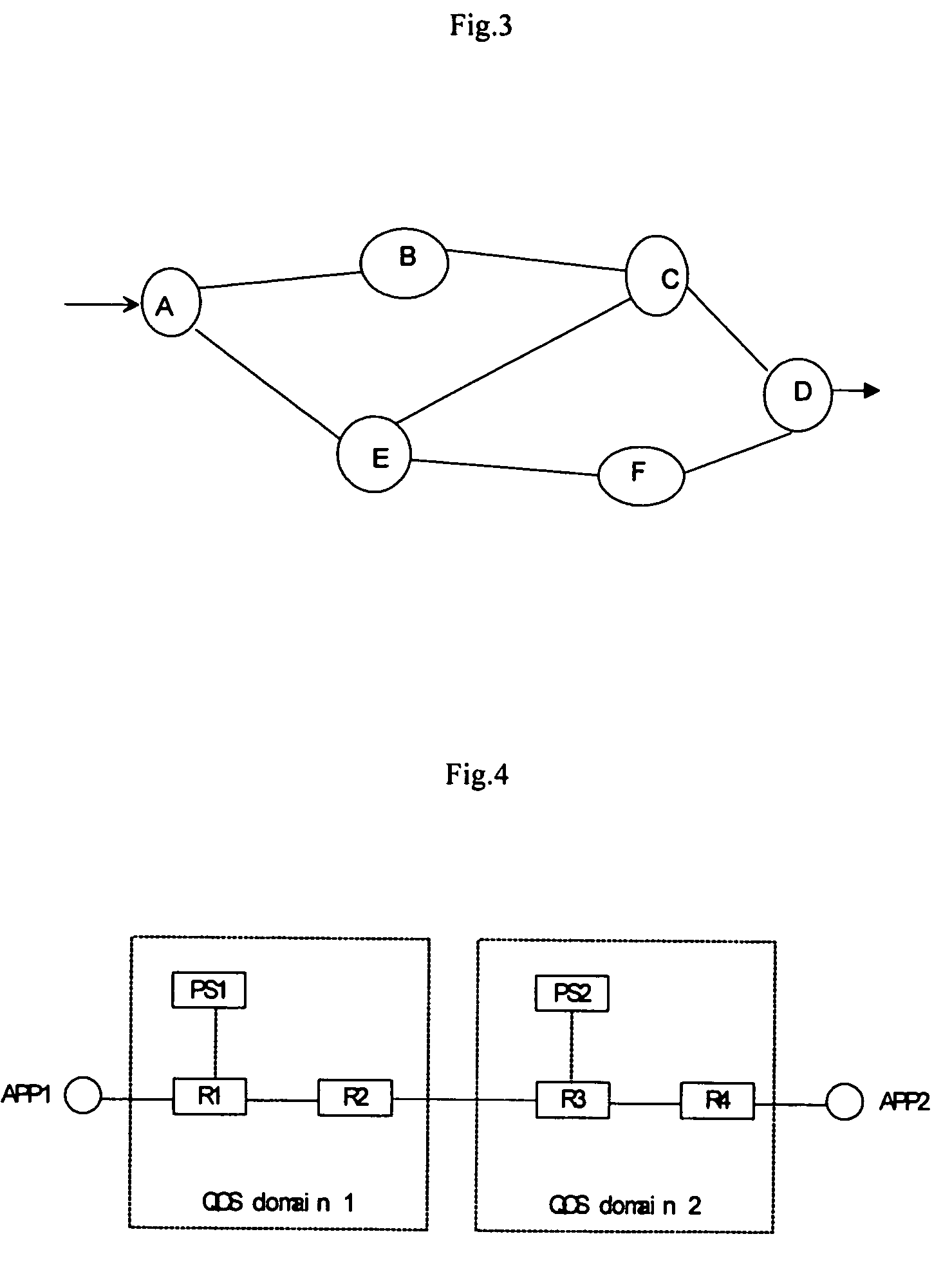System and method for realizing the resource distribution in the communication network
a communication network and resource technology, applied in the field of network communication, can solve the problems of limited applicability, inability to guarantee the application of technology, and only suitable aggregate models, and achieve the effects of simple implementation, convenient interconnection between different networks, and expanded applicability of the present invention
- Summary
- Abstract
- Description
- Claims
- Application Information
AI Technical Summary
Benefits of technology
Problems solved by technology
Method used
Image
Examples
Embodiment Construction
[0093]The present invention solves end-to-end QOS problem for data flows in network communication and can be referred to as Class-Based Integrated Service (CB-IntServ). It combines the control plane of IntServ with the forwarding plane of DiffServ to provide end-to-end QOS assurance in any network, whatever the scale or topology of the network is. In addition, the present invention can be implemented both in individual domains, across domains and across ASs.
[0094]Providing end-to-end QOS assurance for individual data flows doesn't means steam-based end-to-end paths must be used; instead, for a single network device, what is only required is to reserve enough resources for data flows passing through it, i.e., resource reservation can be aggregated, this is because, in the case of resource reservation, employing multiple QOS queues for the same class of data flows delivers the same effect as employing only one queue substantially; however, in view that different classes of services ha...
PUM
 Login to View More
Login to View More Abstract
Description
Claims
Application Information
 Login to View More
Login to View More - R&D
- Intellectual Property
- Life Sciences
- Materials
- Tech Scout
- Unparalleled Data Quality
- Higher Quality Content
- 60% Fewer Hallucinations
Browse by: Latest US Patents, China's latest patents, Technical Efficacy Thesaurus, Application Domain, Technology Topic, Popular Technical Reports.
© 2025 PatSnap. All rights reserved.Legal|Privacy policy|Modern Slavery Act Transparency Statement|Sitemap|About US| Contact US: help@patsnap.com



